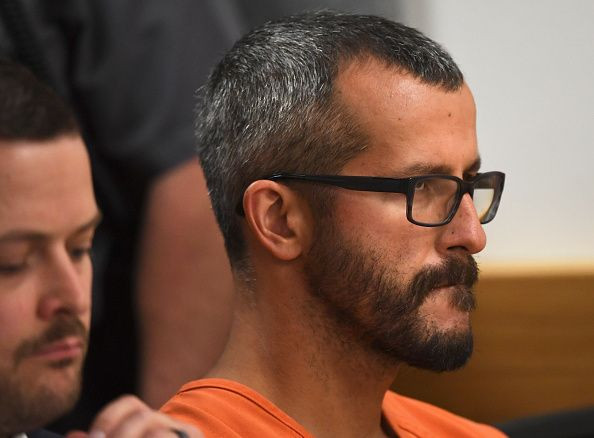Why Do Men Like Chris Watts Become 'Family Annihilators'? A Look Inside

On Aug. 13, 2018, Colorado resident Chris Watts murdered his pregnant wife Shanann and their two children, Bella, 4, and Celeste, 3. Watts went on to be convicted of the crimes and was sentenced to serve five life sentences at a Wisconsin prison. This particular case has led many to wonder in the past year what causes some men to murder their families, and are there similar characteristics between these so-called "family annihilators"?
In 2013, a team of criminologists from Birmingham City University decided to study this disturbing phenomenon in the first-ever study of British "family annihilators" in order to try to answer the question.
According to Professor David Wilson, one of the paper's three authors and the Director of the Centre of Applied Criminology at Birmingham City University, men who commit this type of crime are often seen in a similar light as those who are serial or "spree" murderers. This means they are often thought of as being someone who "snaps" or forces a stand-off with the police after the crime.
However, by analyzing newspaper archives, the study found that very few of these men had previous criminal records or had sought out mental health services beforehand.
"The clearest unifying factor is that this is overwhelmingly a male crime. While 71 family annihilators were identified, 59 were male. We also found that the rate at which this type of crime is being committed has increased, with the first decade of the 21st century claiming over half of all cases," said Wilson.
Additionally, the study noted that over half of the men, 55 percent, were in their 30s, and August was found to be the most common month for this type crime to take place at 20 percent.
As for traits that each exhibited, the researchers grouped them into four main types: self-righteous, disappointed, anomic, and paranoid, but in all cases "masculinity and perceptions of power" set the tone leading up to the event. Dr. Neil Websdale echoed that sentiment when speaking to Rolling Stone in March following Watts' sentencing, describing the "continuum" that they fall on.
"Some cases involve very violent, controlling batterers who are misogynistic, who engage in lots of acts of domestic violence up to the time of the killing. At the other end of the continuum - which is really about the ability to regulate or repress anger - you're looking at more controlled, repressed, depressed individuals who may be on the edge of a psychotic break," Websdale said.
As for some of the reasons why they may decide to commit these types of murders, Dr. Katherine Ramsland, a professor of forensic psychology and criminal justice at DeSales University in Pennsylvania, shared some insights with A&E.
"... In general, these men are fragile and unable to cope with humiliation. They're unable to make appropriate decisions when burdened by anxiety, rage or depression," she said, adding that it's "very much about the individual and his circumstances."





















